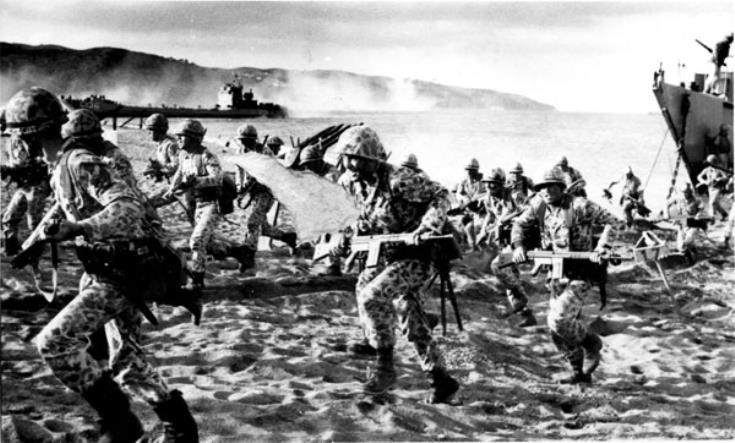Today marks 47 years since the outrageous day of the Turkish invasion, the consequences of which Cyprus is still experiencing. The Cypriot people today condemn the crime and honor the fallen.
The sirens sounded in all the cities with the signal to start the alarm at 5:30 in the morning, at the time when Turkey in 1974 invaded Cyprus.
The President of the Republic, accompanied by the Minister of Defense, will be present, initially, at 8 p.m. in a memorial prayer at the Tomb of Makedonitissa and then, at 10 a.m. at the annual memorial service for those who fell during the Turkish Invasion, at the Church of the Apostle Barnabas, at the Archdiocese of Nicosia. At 9 pm, President Anastasiadis will be the keynote speaker at the event in memory and honor of those killed during the Turkish invasion of the Presidential Palace.
Political parties and organizations have issued statements condemning the invasion.
Turkey, which had been procrastinating for years, found with the treacherous coup of the junta and their settlers the reason it sought to implement its own plans on the island, spreading death and destruction.
Like today, on July 20, 1974, he invaded Cyprus militarily, violating the Charter of the United Nations. This first phase of the crime was followed by a second on August 14, 1974, with Turkey completing its crime against Cyprus and its people. In this phase the city of Famagusta was occupied.
The conqueror stepped on the sacred soil of our land, death, pain, refuge, rape, missing, trapped and today, 47 years later, he sets foot again with the Turkish President launching threats to Varosi.
As a result of the Turkish military invasion and occupation, 162.000 Greek Cypriots were displaced and became refugees in their own homeland. Tents, refugee camps everywhere and children with meals.
Initially, 20.000 Greek Cypriots and Maronites chose not to leave their homes but were gradually forced to leave the occupied areas where they lived. The number of Greek Cypriots and Maronites living in the occupied area today has dropped to 300.
The most tragic consequence of the invasion is the drama of the missing and their relatives who are still struggling every hour to find out about the fate of their loved ones. Thousands of Greek Cypriots were arrested and detained in concentration camps in Cyprus by Turkish soldiers and paramilitaries operating under the direction of the Turkish army. In addition, more than 2000 prisoners of war were illegally transferred and held in prisons in Turkey. Some of them are still missing. Hundreds of other Greek Cypriots, both soldiers and civilians (including the elderly, women and children) have disappeared in Turkish-occupied areas and their fate is still unknown. In all these cases there is well-documented evidence that the missing persons were last seen alive at the hands of the Turkish army or paramilitary groups, acting under the direction and responsibility of the Turkish occupying forces. The Commission of Inquiry into the Missing is trying to provide answers to this drama by exhuming and identifying the bones of the missing.
Turkey has illegally occupied 37% of the territory of the Republic of Cyprus, which it still holds today, pursuing the same policy, disregarding UN resolutions, decisions of international courts and resolutions of other international organizations.
It continues the systematic policy of settlement of the occupied part of Cyprus and the destruction of the cultural heritage of this historic island of the Mediterranean, aiming, among other things, at the elimination of every Greek and Christian element that existed for centuries.
Negotiations for the settlement of the Cyprus problem have been under way since 1975 under the auspices of the UN, with the last attempt taking place at the end of April in Geneva.
